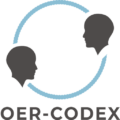Cognitive Learning Analytics: Enhancing Understanding Through Data
Cognitive Learning Analytics (CLA) represents a significant stride forward in the realm of educational technology, focusing on understanding and improving the cognitive aspects of learning. This module explores how CLA applies data analytics to delve into the cognitive processes involved in learning, offering a nuanced perspective that goes beyond mere performance metrics.
Understanding Cognitive Processes in Learning
At the heart of CLA is the exploration of how students think, understand, and retain information. Cognitive processes such as attention, memory, and problem-solving are critical to effective learning. CLA seeks to analyze these processes by examining how students interact with learning materials, how they approach problem-solving, and how they engage in critical thinking.
The Framework-Based Approach to Cognitive Analysis
CLA employs a structured, framework-based approach to analyze learning. This involves constructing cognitive maps that outline how different concepts are understood and related to each other by students. For example, in programming courses, a cognitive framework might involve the understanding of basic concepts like variables and loops, and how these are applied in more complex problem-solving scenarios.
Assessment Data in Cognitive Learning Analytics
A key component of CLA is the use of assessment data to gauge cognitive understanding. This includes not just final grades or test scores, but also formative assessments that provide ongoing feedback on student understanding. By analyzing this data, educators can identify which concepts students are struggling with and adjust their teaching methods accordingly.
Predictive Analysis and Personalized Learning
An exciting development in CLA is the use of predictive analytics to forecast student performance and learning needs. By identifying patterns in how students learn and progress, CLA can predict future performance, allowing for early intervention and personalized support. This predictive capability is particularly valuable in complex subjects like programming, where early foundational understanding is crucial for later success.
Challenges and Opportunities in Cognitive Learning Analytics
Implementing CLA presents unique challenges. The complexity of cognitive processes means that data must be interpreted carefully to avoid oversimplification. Additionally, CLA requires comprehensive data collection and processing capabilities. However, the opportunities CLA presents are immense. It opens up new pathways for personalized education, where teaching methods and materials are tailored to individual cognitive needs and learning styles.
